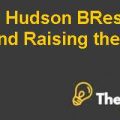Walmart (Arbridged) Case Study Help
Multi-Stage Dividend Valuation Model:
The multi stage dividend valuation model involves estimating intrinsic value of Walmart shares by predicting the earnings and dividends of the organization over three different stages. The three stages includes 9 years of growth stage, 8 years of transition stage and maturity year. The intrinsic value using multi stage dividend model is estimated to be $38.63 per share.
The EPS forecast for 2006 and 2007 is already specified in the case study whereas, a constant growth rate of 13.7 percent is estimated for the remaining seven years of growth stage. The intrinsic value is based on the present value of the future dividends in the two stages and terminal value in the last year of the second stage. As per the analyst evaluation of dividend discount model, the dividend after the second stage will grow by a perpetual growth rate of 7.5 percent. (Annexure, Excel)
Moreover, the profit levels of the organization reduces in the transition stage till it reaches the maturity stage where the organization enjoys a constant profit and dividend growth in perpetuity. Furthermore, the analyst has predicted that the dividend payout ratio will be 45 percent at maturity.
Reasonableness and Potential Sensitivities:
The dividend valuation model is based on various assumption that the organization will pay dividend in each year therefore, will not be useful if dividends are not paid. Furthermore, it is based on assumptions in relation to growth rates, which might be incorrectly estimated thus, giving inaccurate valuation results of the organization’s shares.
Recommendation:
Rachael Martin will recommend its clients to sell the Walmart Shares as the all-time high current price of the organization’s shares amounting to $55 per share is evaluated to be overvalued considering, the intrinsic using dividend discount models with perpetual growth rate and multi stage dividend discount model is $48 and $38 per share. In addition, the intrinsic value estimated by using multi-stage dividend discount model is considered to be more fair, reliable and accurate as it is based on the present value of the dividend and term value. However, the organization has appears to generate significant earnings from its investment which is evident by the return on equity of 20.8 percent and is considered to have a strong financial position and performance. (See Appendix 4)..............................
This is just a sample partical work. Please place the order on the website to get your own originally done case solution.










